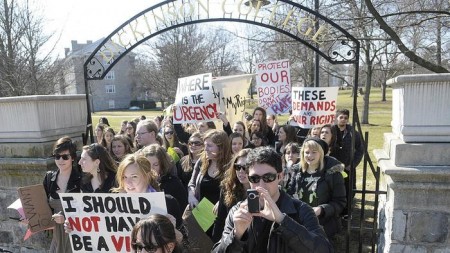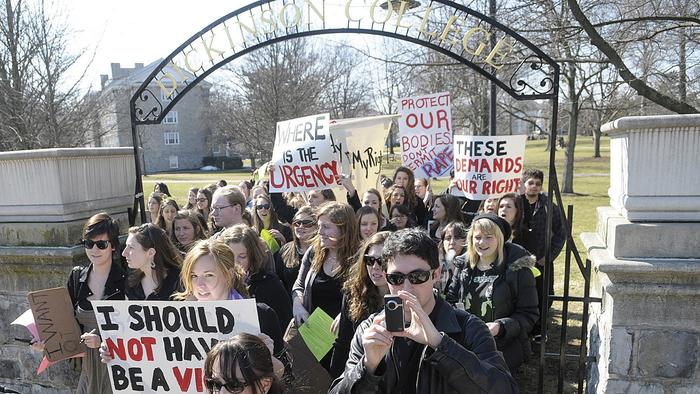“We need to draw distinctions between behavior that is criminal, behavior that is stupid and behavior that results from the dance of ambiguity,” writes Carol Tavris in an op-ed for the Los Angeles Times

Students at Dickinson College marched across campus in March 2011 demanding the school deal more harshly with students who committed sexual offenses. (Jason Malmont / Associated Press)
When I was a young social psychologist and feminist in the 1970s, I never imagined that I would be asked to testify for the defense in a rape case. Rape laws at the time still included the “marital rape exemption,” with rape commonly defined as “an act of sexual intercourse with a female, not one’s wife, against her will and consent.” Men joked about this. “If you can’t rape your wife,” California state Sen. Bob Wilson said to a group of women in 1979, “who can you rape?”
Making the nation aware of the reality and brutality of rape — in a time of jokes, nonsensical theories and misogynist laws — was an arduous task, so it put me in a state of cognitive dissonance when a female defense attorney asked me to work with her on a case. Her client had been accused of raping a woman he had fired for incompetence.
The plaintiff had ready responses to the defense attorney’s questions. Why did she wait a month after her dismissal to file charges against him? She was traumatized. Why didn’t she report it at the time to anyone she knew, or a doctor? She was ashamed. Why didn’t she have emotional or physical symptoms then or afterward? The absence of symptoms is a symptom of “rape trauma syndrome.”






